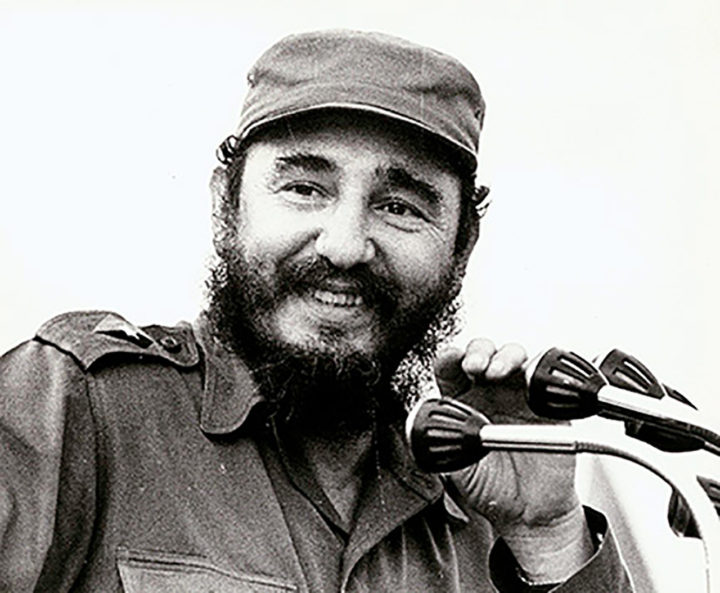Yesterday, very early in the morning, the news reached Europe of the death of Fidel Castro, the former leader of the Caribbean island of Cuba at the age of 90 years of age.
With the pleasure of having hundreds of friends and acquaintances in Latin America my Facebook feed was immediately inundated with a mixture of tributes and denunciations.
Many of them were tributes to the man who so stubbornly fought against the USA in the face of an economic blockade that impoverished the people. And yet despite this Cuba can boast a literacy rate of 99.7% and a life expectancy of 78.7 years, reflecting the priority the government has for healthcare and education, and putting the vast majority of countries in the world to shame, including those in the so-called “first world”.
Many tributes recognised the support the Cuban regime gave to many countries around the world through the sending of doctors in times of natural disasters. This undoubtedly prevented the loss of many, many thousands of lives of poor people in desperate situations.
To this we can add the extraordinary statistic that not a single person died in Hurricane Matthew this year as a result of the efficiency the island has for dealing with natural disasters, compared to hundreds of deaths in Haiti, just 80km away.
Other tributes highlighted the support of Cuban military forces in countries such as Angola, fighting against the scourges of imperialism, capitalism and racism in order to bring freedom to the people of those countries and the chance for them to reach the development levels experienced by Cubans, conveniently ignoring the inevitable “collateral damage” of such interventions,.
And there were yet other posts; pictures that showed Fidel with blindfolded opponents about to face a firing squad for disagreeing with the boss, others that pointed out that thousands of opponents met a similar fate, showing the bloodthirsty ruthlessness that the man was also capable of.
All of this is Fidel Castro, and one cannot give a complete picture of the man without seeing the good and the bad stuff.
In recent years, as progressive governments advanced in Latin America, Fidel Castro became a kind of mythical figure in many places with the human rights abuses increasingly forgotten or conveniently ignored. But this is a rather unfortunate whitewashing of history. According to a report by Cuba Archive, between the 1st of January 1959 and the 25th of January 2012 there were 3615 deaths by firing squad. If we put this in context, the dictatorship of Augusto Pinochet in Chile was responsible for 3200 deaths according to the Valech Report.
The truth is that communist thinking, as ideal as it sounded in practice: “Workers of the world unite”, in Cuba became, “Homeland or Death, we shall overcome”.
And quite frankly, given that the situation on the island became increasingly precarious many Cubans preferred to take their chances with death and abandoned the island. It is estimated that 1.5 million Cubans left compared to a population of over 11 million today.
When we come to judge Castro, then, we can say that the man is a contradiction. Here is someone who had a great love of the people, the working classes – or if not a love for these people, he certainly had an overpowering hatred towards rich and powerful elites. And he had a great solidarity with people suffering the consequences of natural disasters. And on his island, the government system he put in place gave everyone the opportunity to access top quality education and health care, despite the economic blockade which created a situation that became even more acute when Soviet Union support ended with the fall of the Berlin Wall.
Yet, we cannot forget his violence and his intolerance of dissent. We cannot condone murders that are committed in the name of a cause. People were murdered by him with his gun and this cannot be ignored. We simply cannot tolerate any violence done towards human beings, and especially if it is done in the name of something as abstract as a revolution, because this removes the value of human life from its deserved position of priority number 1.
What we can say is that he was ahead of his times in terms of his vision for humanity. Maybe we can even say that he aspired to a Universal Human Nation, the problem is that you cannot impose such a thing by force, by killing people or by putting a gun to their head.
The moment that human life loses its value, any revolution has already lost and is doomed to failure and bloodshed.
Today there are many of us who yearn for a Universal Human Nation and hopefully we have seen the experiences of revolutions in the historical record, such as the Russian and Cuban Revolutions, and the fight for independence in India and we will conclude that Gandhi’s path was ultimately more interesting even if we can say that Indian democracy and the culture of the country itself is very far away from the ideal of a Universal Human Nation that we aspire to.
The Universal Human Nation can only come from a sincere yearning that comes from placing human life as the central value. And for this to happen a cultural and spiritual change has to occur in people. So until we are able to see this cultural and spiritual change reach such a level that all cooperation with the violent dictatorship of the economic system we live in today stops (a dictatorship which by the way kills millions of people every year, doomed to die in wars and out of poverty – putting both Castro AND Pinochet in the shade in terms of the evil done) the best thing we can say about Fidel Castro is that the world wasn’t ready for all the good that he was capable of doing.










